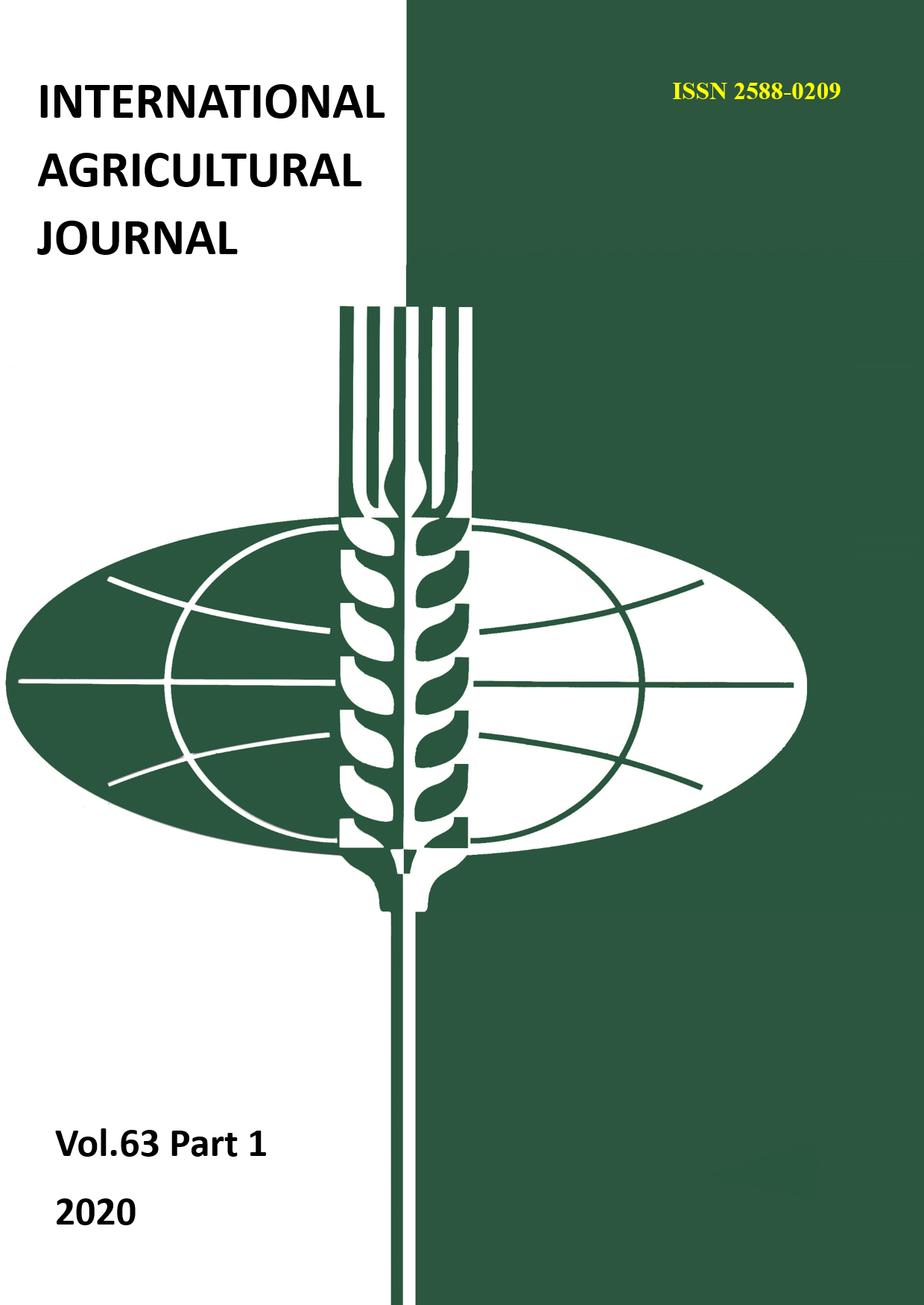THE ECONOMIC NATURE OF TAXES AND ITS IMPLEMENTATION IN THE CONTEXT OF THE FORMATION AND DEVELOPMENT OF A MARKET ECONOMY IN THE RUSSIAN FEDERATION
Main Article Content
Abstract
The article considers the economic essence of taxes and the realization of this essence in the conditions of formation and development of market economy in the Russian Federation on the example of work of territorial department of Federal Tax Service in Karachay-Cherkessia Republic. Disputable formulations and parts of the existing definitions of the economic substance of taxes are highlighted. In particular, weaknesses in the definition of taxes, which is reflected in the Tax Code of the Russian Federation, are considered. The definition of the substance of taxes in the current market conditions has been formulated. The positive aspects of the approaches of other authors and legislators have been taken into account. The wording that taxes are individually gratuitous payments is doubtful, since individuals, as well as legal entities, receive in return a set of various benefits from the state, which, among other things, allow them to function steadily in the market in conditions of competitive advantage. The dynamics of the elements of tax revenues of the consolidated budget of the Karachay-Cherkessia Republic in 2016-2018 is considered, and the plan of fulfillment of the relevant targets during the same period is calculated. It is determined that most of the targets have been achieved, although underperformance of the plan is observed for some items. It should also be noted that taxation of agricultural producers in Russia continues to be one of the directions of reforming the tax system. Peculiarities of manifestation of economic essence of taxes in the conditions of development of market economy on the territory of Karachay-Cherkessia Republic are specified. It is revealed that the negative side of the current system of taxation is the orientation exactly on the fiscal function, not on the stimulation of economic development, creation of new enterprises, including in industries with high added value.
Article Details
References
2. Davudov K.R., Abdulkerimov K.K., Ekonomicheskaya sushchnost' nalogov / K.R. Davudov, K.K. Abdulkerimov// Vestnik sovremennyh issledovanij. — 2018. — № 12. —7 (27). — S. 138-140.
3. Zaruk N.F. Etapy nalogovogo reformirovaniya v sel'skom hozyajstve Rossii /N. F. Zaruk // Aktual'nye problemy finansirovaniya i nalogooblozheniya APK v usloviyah globalizacii ekonomiki. Penza, 2018. S. 3−7
4. Kuznecova A.V., Sushchnost' pryamyh i kosvennyh nalogov i osnovnye podhody k ih klassifikacii / A.V. Kuznecova// Nauka, obrazovanie, obshchestvo: tendencii i perspektivy razvitiya. — 2018. — S. 277-279.
5. Nikolenko YU.B., Sushchnost' nalogov i ih rol' v ekonomike gosudarstva / YU.B. Nikolenko// Innovacionnye nauchnye issledovaniya: teoriya, metodologiya, praktika. —. 2019. — S. 49-51.
6. Sokolov N.S., Ekonomicheskaya sushchnost' i funkcii nalogov / N.S. Sokolov// Ekonomika i biznes: teoriya i praktika. — 2019. — № 5-3. — S. 54-58.
7. Nalogovyj kodeks Rossijskoj Federacii (chast' pervaya) ot 31.07.1998 № 146-FZ (red. ot 27.11.2017) (s izm. i dop., vstup. v silu s 14.12.2017) // Rossijskaya gazeta. № 148-149. 06.08.1998
8. SHulepova O.P., K opredeleniyu sushchnosti naloga na pribyl' organizacij / O.P. SHulepova// Novaya nauka: Problemy i perspektivy. — 2017. — № 1-1. — S. 269.
9. Anfinogentova E.S., Filippova I.A., Sushchnost' nalogov i nalogooblozheniya / E.S. Anfinogentova, I.A. Filippova// Vestnik nauchnyh konferencij. — 2017. — № 5-3 (21). — S. 9-10.
10. Gorbacheva E.N., Sushchnost' i osnovnye vidy ukloneniya ot uplaty nalogov organizaciyami pri obshcheustanovlennoj sisteme nalogooblozheniya / E.N. Gorbacheva// V sbornike: Novyj vzglyad. — Mezhdunarodnyj nauchnyj vestnik sbornik nauchnyh trudov. — Novosibirsk, 2017. — S. 90-96.
11. Fedotov A.V., Solyarik M.A., Uklonenie ot uplaty nalogov: sushchnost', prichiny, protivodejstvie v celyah povysheniya ekonomicheskoj bezopasnosti / A.V. Fedotov, M.A. Solyarik// Finansirovanie i kreditovanie rossijskogo biznesa: regional'nyj opyt, problemy, perspektivy. — 2017. — S. 56-58.
12. Solyarik M.A., SHuvalova E.B., Zaharova D.S. Nalogovye aspekty ekonomicheskoj bezopasnosti v Rossijskoj Federacii // Statistika i ekonomika. — 2016. — № 3. — S. 39 – 42.
13. Ponkratova A.P., Bykova D.V., Onoprienko YU.G., Sushchnost' nalogov i otvetstvennost' za ih uklonenie v Rossii / A.P. Ponkratova, D.V. Bykova, YU.G. Onoprienko// Aktual'nye voprosy v nauke i praktike. — 2017. — S. 16-22.
14. Iskandarova O.N., Kutuzova K.YU., Sushchnost' naloga, ego elementy i harakteristika / O.N. Iskandarova, K.YU. Kutuzova// Molodezh' i XXI vek - 2018. — 2018. — S. 111-114.
15. Konsolidirovannye byudzhety sub"ektov Rossijskoj Federacii i byudzhetov territorial'nyh gosudarstvennyh vnebyudzhetnyh fondov [Elektronnyj resurs] – Rezhim dostupa: https://roskazna.ru/ispolnenie-byudzhetov/konsolidirovannye-byudzhety-subektov/ (data prosmotra: 19.01.2020)
16. Statistika i analitika [Elektronnyj resurs] – Rezhim dostupa: https://www.nalog.ru/rn77/related_activities/statistics_and_analytics/ (data prosmotra: 19.01.2020)

